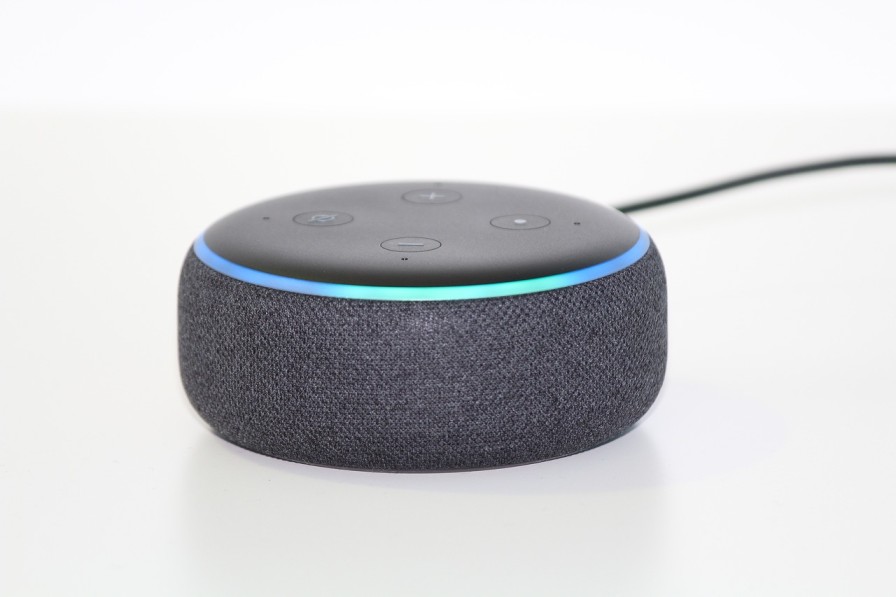Overcoming AI Hallucinations: A New Dawn for Amazon Alexa
As Amazon gears up to revolutionize Alexa with advanced AI capabilities, the battle against hallucinations—erroneous or fabricated responses—takes center stage. This article delves into the technical challenges and breakthroughs Amazon faces as it endeavors to make Alexa a reliable and intelligent AI companion.

Overcoming AI Hallucinations: A New Dawn for Amazon Alexa
In the rapidly evolving landscape of Artificial Intelligence (AI), Amazon's Alexa is poised for a significant transformation. Once celebrated for its ability to play music or provide weather updates, Alexa now faces the challenge of becoming a sophisticated AI agent. However, the path to this transformation is fraught with hurdles, chief among them being the issue of AI hallucinations—when AI generates incorrect or fabricated information.
The Evolution of Alexa: From Voice Assistant to AI Agent
Originally launched as a simple voice assistant, Alexa quickly gained popularity for its ease of use and convenience. Embedded in over half a billion devices globally, its role was initially limited to executing predefined tasks like playing music or controlling smart home devices. However, as the demand for more intelligent and conversational AI systems grows, Amazon recognizes the need for Alexa to evolve beyond its current capabilities.
The Hallucination Dilemma
The term "hallucination" in AI refers to instances where AI models produce nonsensical or inaccurate information. For a voice assistant like Alexa, this can mean delivering irrelevant or incorrect answers to user queries. Such errors undermine user trust and highlight the critical need for accuracy in AI responses.
Amazon's Rohit Prasad, leader of the artificial general intelligence (AGI) team, acknowledges these challenges. "Hallucinations have to be close to zero," Prasad stated, emphasizing the complexity of integrating reliable, rapid response systems on a mass scale. The intricacy lies in merging the existing simple algorithms with more advanced, yet unpredictable, large language models (LLMs).
The Technical Hurdles
The transition from a basic voice assistant to an intelligent AI agent requires a comprehensive overhaul of Alexa’s underlying software architecture. This involves integrating generative AI capabilities that can understand and process complex queries while maintaining high accuracy and reliability.
- Data Integration: Unlike traditional systems, AI models require vast amounts of data to learn and improve. However, accessing and processing this data efficiently remains a significant challenge. Former team member Eric Mihail highlighted slow decision-making processes and limited data access as major impediments during his tenure with the Alexa team.
- Latency and Response Speed: Users expect instantaneous responses from voice assistants. Achieving this requires optimizing the system to process queries and generate responses at lightning speed without compromising accuracy.
- Cost-Effectiveness: Given the scale of Alexa's operations—handling billions of requests weekly—ensuring cost-effective solutions while enhancing capabilities is crucial for Amazon.
Strategies to Combat Hallucinations
To tackle the issue of hallucinations, Amazon is investing heavily in research and development. Several strategies are being explored to enhance AI reliability and accuracy.
- Enhanced Training Models: By refining training datasets and algorithms, Amazon aims to improve the logical reasoning and contextual understanding of AI models. This involves eliminating biases and ensuring data diversity to produce more accurate outputs.
- Human-in-the-Loop Systems: Integrating human oversight in AI processes can help identify and correct potential errors in real-time, thus minimizing the incidence of hallucinations.
- Continuous Monitoring and Feedback Loops: Implementing robust monitoring systems allows for the continuous assessment of AI performance. Feedback loops help refine AI models by learning from past errors and improving future responses.
The Road Ahead
Despite the challenges, the future of Alexa as an intelligent AI agent holds immense promise. As Amazon continues to innovate and refine its AI systems, Alexa could soon become a cornerstone of smart homes worldwide, offering seamless and reliable interactions.
The broader AI industry is also keenly observing Amazon’s strides in addressing hallucinations. Success in this area could set new standards for AI reliability and trustworthiness, influencing how other tech giants approach AI development.
In HONESTAI ANALYSIS, while the journey to an advanced, hallucination-free Alexa is complex, it is a crucial step towards realizing the full potential of AI. Amazon's commitment to overcoming these hurdles signifies a new era for voice assistants, one where they not only respond but understand, interact, and enhance our daily lives in unprecedented ways.

